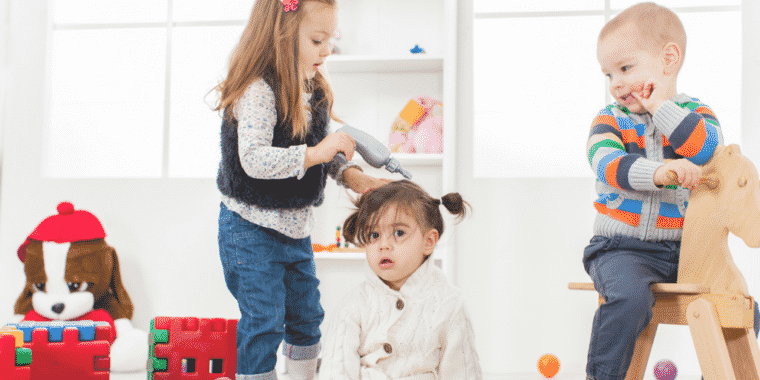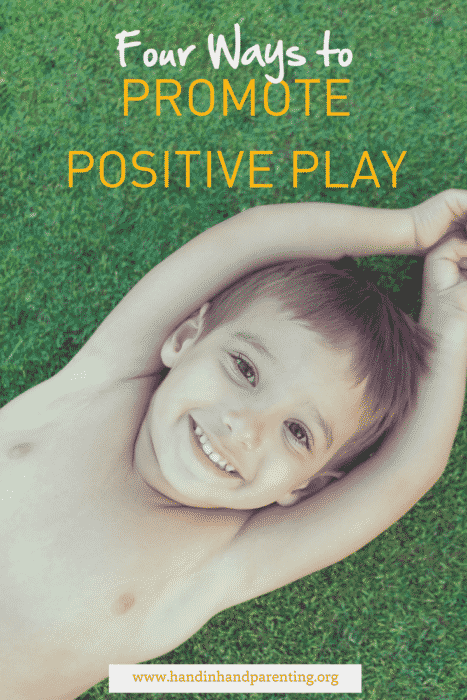![]()
 We've all read research and articles promoting play, but play is more than independent play or playing with siblings or friends. For sure, kids benefit from those ways to play, but playing with parents and caregivers gives additional benefits. Kids feel special and seen when parents play with them. They can use these times to boost their confidence, build lasting bonds and even play out their worries in a safe place when that play is safe and supportive of them.
We've all read research and articles promoting play, but play is more than independent play or playing with siblings or friends. For sure, kids benefit from those ways to play, but playing with parents and caregivers gives additional benefits. Kids feel special and seen when parents play with them. They can use these times to boost their confidence, build lasting bonds and even play out their worries in a safe place when that play is safe and supportive of them.
Four Ways To Promote Positive Play
How can you provide that kind of space? Here are four key ways to play that help foster warm, fun times that support children's development.
Try to take the less powerful role: Putting your child in charge means he can direct the play as he needs to. Often we, as parents, will never know why a child pushes play in one direction or another, although sometimes there may be hints. If your child for instance, pretends to lock you up in jail and then proceeds to force feed you “yucky broccoli” a day or so after he tried broccoli and hated it, you'll have a pretty good idea of what feelings he is working through, but don't expect play to always be this insightful.
Ham it Up: Giggles are a hallmark of childhood for good reason – they help shed tensions and lighten the tone. Any play that gets giggles shows you are on the right track. Spitting that pretend broccoli out, and screwing your face up in horror, for example, might be all he needs to get through his own dislike of the veggie.
 Hold Back: It can be so easy to step in but get comfortable with being directed and holding back criticism. No doubt, pretending to be in jail is not everyone's idea of fun, but know that if you can hold back and let the play unfold, even for 10 minutes, you are going great distance helping build trust and connection with your child and bolstering their confidence.
Hold Back: It can be so easy to step in but get comfortable with being directed and holding back criticism. No doubt, pretending to be in jail is not everyone's idea of fun, but know that if you can hold back and let the play unfold, even for 10 minutes, you are going great distance helping build trust and connection with your child and bolstering their confidence.
Be There: Play addresses children's need to be seen and helps them work through life's sticky spots, so emotions will swell from time to time. See this as them feeling safe enough to let those emotions go. Stay close and calm and gently listen to them, whether they simply cry or whether they rifle off every upset they are feeling in words or howls. Once this cry is done, and children have worked through the upset, they will return to their sunnier selves, and it won't be long before you hear them asking, “Let's play. ”
We call playing in this way Playlistening. It is one of five powerful parenting tools Hand in Hand uses to help parents connect with children. Read about them all in Five Connection Tools That Will Transform Your Parenting.
If you want to play, but don't feel playful read What If I'm Just Not A Playful Parent? and then learn how just 10 minutes of one type of play can transform the relationship you have with your child.
Now you can get our book Listen: Five Simple Tools To Meet Your Everyday Parenting Challenges on Audio. See how it sounds here with this free chapter: Listen to Listen now